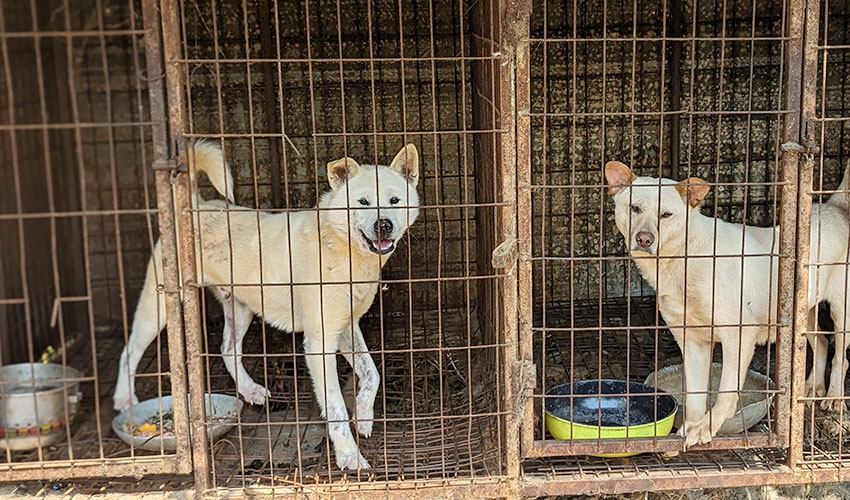In a significant move, South Korea is set to ban the consumption of dog meat, a practice deeply rooted in its cultural history.
The decision, announced by the ruling People Power Party's policy chief, Yu Eui-dong, on Friday, marks a pivotal moment in addressing both domestic opposition and international criticism.
The controversial tradition of eating dog meat has long been a source of contention, drawing condemnation for its perceived cruelty.
While the practice has historical roots on the Korean peninsula and was once considered a way to combat the summer heat, changing attitudes, especially among the younger generation, have fueled a growing movement against it.
At a meeting with government officials and animal rights activists, Yu Eui-dong stated, "It is time to put an end to social conflicts and controversies around dog meat consumption through the enactment of a special act to end it."
He further revealed plans for the government and the ruling party to introduce a bill later this year, expressing confidence in bipartisan support for its passage through parliament.
Agriculture Minister Chung Hwang-keun, present at the meeting, emphasized the government's commitment to swiftly implement the ban and provide substantial support for those currently involved in the dog meat industry to transition out of their businesses.
The proposed ban comes after years of unsuccessful attempts, with anti-dog meat bills facing opposition from industry stakeholders concerned about their livelihoods.
First lady Kim Keon Hee, known for her vocal criticism of dog meat consumption, has been actively involved in advocating for animal welfare. Alongside President Yoon Suk Yeol, the first lady has adopted stray dogs, signaling a personal commitment to the cause.
The ban, if enacted, will bring relief to animal rights groups that have long campaigned against the cruelty associated with the dog meat trade. Humane Society International released a statement saying, "A dream come true for all of us who have campaigned so hard to end this cruelty."
According to government data, there are approximately 1,150 dog breeding farms, 34 slaughterhouses, 219 distribution companies, and around 1,600 restaurants serving dog meat in South Korea.
A Gallup Korea poll from last year indicated that 64% of respondents opposed dog meat consumption, while only 8% reported having consumed dog meat within the past year, a notable decline from 27% in 2015.



























